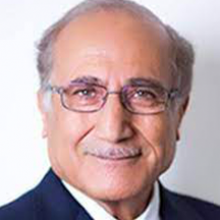You are here
Close encounters with Carter:The century old president
Dec 30,2024 - Last updated at Dec 30,2024
After100 years and nearly two months, president James Earl Carter Jr. answered the inevitable and unfortunate call of death. Among his most distinguished achievements was his victory in November 1976, when he secured the presidency to become the 39th president of the United States. He was subsequently sworn in on January 20, 1977. However, during his bid for
reelection, the embarrassment caused by the revolutionary guard in Iran—who foiled US plans to extract diplomats from the US embassy in Tehran—cost Carter and his administration the election. In turn, Ronald Wilson Reagan was elected as the 40th president.
I personally had the privilege of meeting the late president Carter four times, though none of these encounters occurred while he was serving as president. Our first meeting was during my time as a researcher for the Central Bank of Jordan and a student at the University of Georgia in Athens. At that time, the president and his campaign team were working hard to garner support.
In January1974, the university arranged for a select group of students to meet with the
then- governor of Georgia, Mr Carter. From our first encounter, I could tell he was an amiable person with a warm, congenial smile. It’s safe to say we all fell under the spell of his genuine charm.
Although my Georgia driver’s licence carried an embossed print of the late president’s signature, I received a personalised insignia from him in 1991, just before joining the peace delegation in Madrid later that year. This occurred when I was invited by my friend, renowned cardiac surgeon Dr Omar M. Lattouf,to participate in a medical conference at Emory University in Atlanta. I presented a paper on the economics of telemedicine—a frontier science at the time—and Jimmy Carter was the patron of the event. There, I met him and his late wife, Rosalynn. That marked the second time I encountered the president.
The third meeting occurred in February1999, when he arrived in Amman with three other US presidents to attend the funeral of the late King Hussein Bin Talal, who was buried at the Royal Palaces on February 8, 1999.
The funeral was an august state event, widely regarded as the funeral of the century. It was attended by 96 active and retired heads of state and government. The three other US presidents present were president Bill Clinton and his wife Hillary, president Gerald Ford and president George H.W. Bush. At that time, I was serving as the Chief of the Royal Court and had the opportunity to briefly chat with the presidents, including Mr Carter.
The fourth and final time I met him was in the 21st century at his library in Atlanta. I cannot recall the exact date, but I was accompanied by Dr Lattouf, who wished to visit the president. We spent about ten minutes with him and his wife, Rosalynn.
President Carter was a man of peace, firmly believing that it was the only path to allow the Middle East to realise its full potential. While he will be remembered in history as the peacemaker between Egypt and Israel—Sadat and Begin—for which he was awarded the Nobel Peace Prize alongside them, many Arabs believe that this peace did not serve the unified Arab stance regarding Israel.
In his memoirs titled “Memories”, David Ben-Gurion mentioned that isolating Egypt from the Arab countries at war with Israel should be a prime strategic objective for Israel. Towards the end of his presidency, president Carter attempted to entice the late King Hussein to join the peace process following the Camp David Accords. However, King Hussein was unwilling to undertake that step alone.
Carter believed that peace talks between Jordan and Israel could bolster his bid for a second presidential term.
President Jimmy Carter was an honourable man and holds the record among US presidents for living the longest life, maintaining the longest surviving marriage, and being one of only four presidents to win the Nobel Peace Prize. Notably, Carter received this honour after leaving the White House, unlike Theodore Roosevelt, Woodrow Wilson and Barack Obama, who were awarded the prize while serving their terms.
President Carter’s life was one of service, humility and an unyielding belief in the power of peace. Despite the minor disagreements in vision and policy, I hope his example will guide future and current generations to pursue a more just and peaceful world.










Add new comment